The Conquest of Makkah: A Clear Victory from Allah
The remarkable conquest of Makkah stands as a milestone in history, to be forever etched in the memory of the Prophet ﷺ. From his days of being pursued to today, where he returns triumphant and supported by divine grace, the magnitude of Allah's blessings on this blessed morning cannot be overstated. With each moment of reflection on these blessings, the Prophet ﷺ's devotion and humility towards Allah deepen, as he embarks on this journey of deep significance. This great conquest unfolded on the 20th Ramadan, 8th year after Hijrah (AH), marking the moment when the Muslims successfully integrated the city of Makkah into their Islamic state.
Reasons for the Conquest of Makkah:
The Treaty of Hudaybiyyah, negotiated in the 6 AH, aimed to regulate relations between Muslims and polytheists for a decade. Central to its terms was the principle that those who wished to enter a pact with Muhammad ﷺ and uphold it would be honored, and the same applied to those affiliating with Quraysh. The tribe Khuza’ah aligned themselves with the Muslims, while Tribe Bakr allied with Quraysh.
However, developments following the Treaty of Hudaybiyyah led to a significant shift in power dynamics, tilting the balance in favor of the Muslims. Recognizing the inevitability of an incident from Quraysh's side that would breach the treaty and absolve the Muslims of their obligations, the Prophet ﷺ, out of respect for his commitments, adhered steadfastly to the terms of the treaty. True to the Prophetiic foresight, Quraysh violated the truce by aiding their allies from Banu Dail bin Bakr bin Abd Manaf bin Kinanah in attacking the Khuzaa’h tribe, thereby breaking their covenant with the Muslims as stipulated in the Treaty of Hudaybiyyah.
Events of the Conquest and the Entry into Makkah:
In response to this, during the blessed month of Ramadan, the Prophet ﷺ, peace be upon him, mobilized the Muslims towards Makkah. This marked the opening of Makkah after he had been expelled from it, fearing for his life, for a full eight years. The Muslim army numbered ten thousand fighters during this great conquest.
On the way to Makkah, the Prophet, peace be upon him, met his uncle Abbas, who had embraced Islam long ago and had been an informant for the Prophet ﷺ in Makkah. There had been correspondence between him and the Prophet ﷺ, and it is said that it was the Prophet ﷺ, peace be upon him, who sent him out.
As the Islamic army approached Makkah in the darkness, the Prophet ﷺ, peace be upon him, ordered each soldier to light a fire, creating ten thousand flames. Fear gripped the hearts of the polytheists of Quraysh. Abbas met them and informed them of the situation. He then took Abu Sufyan to the Prophet ﷺ, peace be upon him, who granted him safety and honored him by saying, "Whoever enters the house of Abu Sufyan is safe." The Prophet ﷺ then ordered Abu Sufyan to be detained so that he could witness the passing of the Islamic army in all its divisions. He saw how Muhammad ﷺ, peace be upon him, who had once left Makkah in the darkness of the night, hiding from sight, and disappeared for three days in the cave of Thawr, was now leading an army of ten thousand warriors, capable of moving mountains if commanded.
The army moved until it reached Makkah, entering peacefully without any fighting, except for an incident involving the Muslim commander Khalid ibn al-Walid. Some men of Quraysh, led by Ikrimah ibn Abi Jahl, attempted to resist the Muslims. Khalid fought them, killing twelve of them while the rest fled. Two Muslims were killed in the skirmish.
The Prophet ﷺ entered Makkah glorifying and exalting Allah, victorious, dignified, forever triumphant. Around him were the emigrants who had been expelled from their homes and families yesterday, and the Ansar who had welcomed them as the best of hosts, being true brothers to them. Among them was Bilal, the Abyssinian, who had been severely tortured by Umayyah ibn Khalaf before. He climbed onto the Kaaba and proclaimed the victory of truth, the defeat of falsehood, and proclaimed the greatness, called to prayer, and bore witness that there is no god but Allah and that Muhammad ﷺ is the Messenger of Allah.
The Prohphet then proceeded to strike the idols around it with a bow he had with him, saying: "The truth has come, and falsehood has vanished. Indeed, falsehood is bound to vanish." He also recited: "The truth has come, and falsehood cannot begin [or create] or repeat." He saw images and statues in the Kaaba, so he ordered them to be broken. He refused to enter the Kaaba until the images were removed. Among them was an image they claimed to be of prophets Ibrahim and Isma'il, each holding divining arrows. The Prophet Muhammad ﷺ, peace be upon him, said: "May Allah fight them! They knew they were never divining by it."
He also said: "There is no god but Allah alone, without any partner. He fulfilled His promise, supported His servant, and defeated the confederates alone. Indeed, all wealth, property, and blood are under my feet. Except for the guarding the Kaaba and the watering service of the pilgrims. Know, O Quraysh, that Allah has removed from you the arrogance of Jahiliyyah and its boasting about ancestors. People are from Adam, and Adam was created from dust.
Then he recited the verse: "O mankind, indeed We have created you from male and female and made you peoples and tribes that you may know one another. Indeed, the most noble of you in the sight of Allah is the most righteous of you. Indeed, Allah is Knowing and Acquainted."
The key to the Kaaba was with Uthman ibn Talha before he embraced Islam. Ali wanted the key to be given to him along with the watering service, but the Prophet ﷺ, peace be upon him, handed it back to Uthman after he exited the Kaaba and returned it to him, saying: "Here is your key, O Uthman. Today is a day of loyalty and fulfillment."
When Makkah was opened to the Prophet Muhammad ﷺ, peace be upon him, the Ansar said among themselves: "Do you think that when the land and country of the Prophet of Allah are opened to him, he will choose to stay here?" The Prophet ﷺ was supplicating on Mount Safa, raising his hands. After he finished his supplication, he asked them: "What did you say?" They replied: "Nothing, O Messenger of Allah." He continued to insist until they informed him. He then said: "Allah forbid, my life is with you and my death is with you."
Indeed, on the day of the conquest of Makkah, the Messenger of Allah, peace be upon him, entered wearing a black turban without the pilgrim's garment , humbly submitting to Allah, as he saw the honor bestowed upon him by Allah in the conquest. His chin almost touched the saddle's strap due to his humility. He entered while reciting Surah Al-Fath, sensing the grace of the conquest, the forgiveness of sins, and the abundant victory. When he entered Makkah as a conqueror, it became the heart of the Arabian Peninsula and its spiritual and political center.
General Amnesty
After the conquest, the people of Makkah were granted a general amnesty despite the harm they had inflicted upon the Prophet Muhammad ﷺ and his call to Islam. Despite the capability of the Islamic army to annihilate them, the announcement of amnesty came while they were gathered near the Kaaba, awaiting the judgment of the Prophet Muhammad ﷺ. He asked them, "What do you think I will do to you?" They responded, "You are a noble brother and the son of a noble brother." He then said, "There is no avenge upon you today; may Allah forgive you."
This general amnesty led to the preservation of lives, the retention of movable property and lands by their owners, and the exemption from taxation. Makkah was not treated like other conquered regions, as it held a special sanctity and reverence among Muslims. It is the sanctuary of worship and a sacred place sanctified by the Lord Almighty.
Prophet’s sermon on the day
On the second day of the conquest, the Messenger of Allah stood and delivered his famous sermon, stating,
Allah's Messenger (ﷺ) got up on the day of the Conquest of Makkah and said, "Allah has made Makkah a sanctuary since the day He created the Heavens and the Earth, and it will remain a sanctuary by virtue of the sanctity Allah has bestowed on it till the Day of Resurrection. It (i.e. fighting in it) was not made lawful to anyone before me! nor will it be made lawful to anyone after me, and it was not made lawful for me except for a short period of time. Its game should not be chased, nor should its trees be cut, nor its vegetation or grass uprooted, not its lost items picked up except by one who makes a public announcement about it." Al-Abbas bin `Abdul Muttalib said, "Except the Idhkhir, O Allah's Messenger (ﷺ), as it is indispensable for blacksmiths and houses." On that, the Prophet (ﷺ) kept quiet and then said, "Except the Idhkhir as it is lawful to cut."
The Prophet Muhammad ﷺ remained in Makkah for nineteen days, reaffirming the principles of Islam, guiding people towards righteousness and piety. During these days, he commanded Abu Asid Al-Khazraji to renew the boundary markers of the sanctuary and dispatched his troops to invite people to Islam and demolish the idols surrounding Makkah. All the idols were shattered, and a crier announced in Makkah, "Whoever believes in Allah and the Last Day should not leave any idol in his house unbroken."
Results of the conquest of Makkah
One of the outcomes of the conquest of Makkah was the conversion of many of its people to the religion of Islam. Among them were notable figures such as the leader of Quraysh and Kinanah, Abu Sufyan ibn Harb, his wife Hind bint Utbah, as well as I’kramah ibn Abi Jahl, Suhail ibn Amr, Safwan ibn Umayyah, Abu Quhafah, the father of Abu Bakr al-Siddiq, and others. Additionally, Makkah came under the influence of the Muslims, and the rule of Quraysh over it was abolished. The Muslims emerged as a significant power in the Arabian Peninsula. The wish of the Prophet Muhammad ﷺ for Quraysh to embrace Islam was fulfilled, and the Islamic state became a major force in the Arabian Peninsula that no tribal gathering could stand against.
Disclaimer
The views expressed in this article are the author’s own and do not necessarily mirror Islamonweb’s editorial stance.

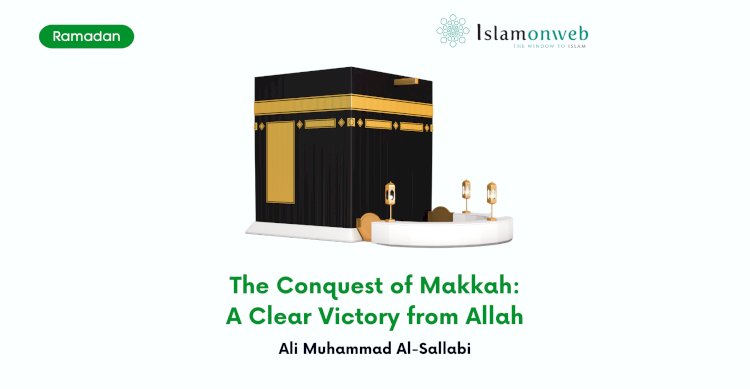



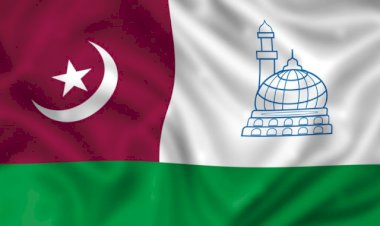
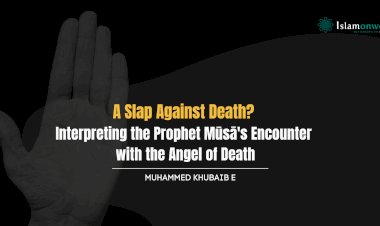
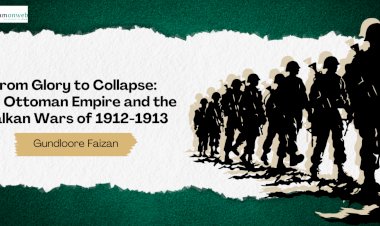
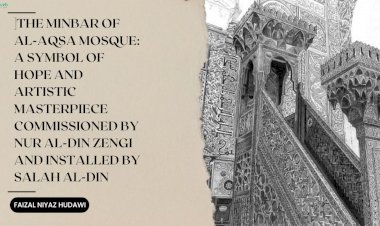
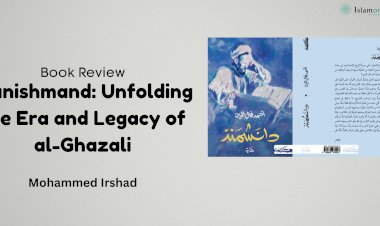
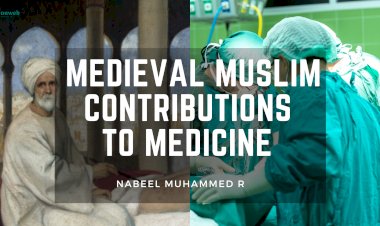














Leave A Comment